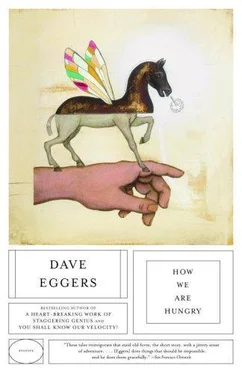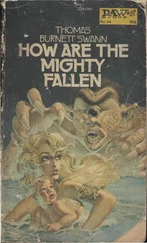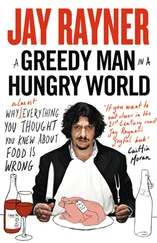Dave Eggers - How We Are Hungry
Здесь есть возможность читать онлайн «Dave Eggers - How We Are Hungry» весь текст электронной книги совершенно бесплатно (целиком полную версию без сокращений). В некоторых случаях можно слушать аудио, скачать через торрент в формате fb2 и присутствует краткое содержание. Год выпуска: 2005, Издательство: Vintage Canada, Жанр: Современная проза, на английском языке. Описание произведения, (предисловие) а так же отзывы посетителей доступны на портале библиотеки ЛибКат.
- Название:How We Are Hungry
- Автор:
- Издательство:Vintage Canada
- Жанр:
- Год:2005
- ISBN:нет данных
- Рейтинг книги:3 / 5. Голосов: 1
-
Избранное:Добавить в избранное
- Отзывы:
-
Ваша оценка:
- 60
- 1
- 2
- 3
- 4
- 5
How We Are Hungry: краткое содержание, описание и аннотация
Предлагаем к чтению аннотацию, описание, краткое содержание или предисловие (зависит от того, что написал сам автор книги «How We Are Hungry»). Если вы не нашли необходимую информацию о книге — напишите в комментариях, мы постараемся отыскать её.
A Heartbreaking Work of Staggering Genius
How We Are Hungry — читать онлайн бесплатно полную книгу (весь текст) целиком
Ниже представлен текст книги, разбитый по страницам. Система сохранения места последней прочитанной страницы, позволяет с удобством читать онлайн бесплатно книгу «How We Are Hungry», без необходимости каждый раз заново искать на чём Вы остановились. Поставьте закладку, и сможете в любой момент перейти на страницу, на которой закончили чтение.
Интервал:
Закладка:
“Not really,” she said. “There are lots of jobs. There are so many things to do. Too damned many, really. It might be time to move anyway. This town is choking me.”
She laughed with her eyes closed. I laughed and watched her. I knew then that I would get her a job where I worked, that she and I would become closer, that I would know the things I wanted to know about her.
We sat on the curb.
Near us a bearded man’s sign said “Friend of the Earth.”
Erin pointed to him. “He’s a friend of the Earth,” she said.
A couple walked by, young and holding hands, wearing black handkerchiefs over their faces. Erin’s face darkened. “I have to get out of this country for a while,” she said.
That was more than two years ago. Now, in our small plastic-smelling car we skittered around Edinburgh’s glowering black fortress. Up the hill and through the castle’s parking lot running and squealing in the rain and once within the thick stone walls we took a tour elucidating the history of the country’s crown jewels. We made very, very funny jokes about these crown jewels, and the role of the peasant women in protecting and hiding them. We watched footage of Scottish soldiers from WWII, maybe it was WWI, though most of the film involved the soldiers standing around smoking pipes. The old speedy film made them seem nervous, their movements bird-like. There was a long stretch of the soldiers in kilts, dancing two by two, arms hooked, on an outdoor stage, presumably to entertain their colleagues. Spinning, twirling, sometimes with one hand above their heads, sometimes one over their bellies— it’s hard to explain.
“They don’t teach soldiers to dance like they used to,” Erin said.
Every man in the film was dead by now. When I was very young I couldn’t watch anything black and white on TV because I knew the people moving were now dust. I hugged Erin from behind, and she stared at my hands linked, loosely, over around her waist.
I knew that she had not been content since moving to London. Her worries, though, came from home. She was getting news from her family and felt helpless. Her favorite cousin, a marine, was in Kabul. Her parents were still married but were seeing other people; her mother was dating a retired man who held the Stop sign at a school crosswalk. He sat on a lawn chair when between trips across the road.
“I always assumed he wasn’t all there,” Erin said, about the man, whose name was Jedediah. “Not retarded, you know…” She made a face that looked like a zombie’s. She scratched her temples and crossed her eyes. Now the man was sleeping in her mother’s bed.
I’d never been interested in someone like Erin before. She had an MBA, which I didn’t understand — MBAs generally or the fact that she’d wanted one. She knew menus and cheeses and Caribbean islands named after saints. But she was very strong and even reckless. She had quit her job in D.C. and now she was here.
She wanted to start an ex-pat community in London, or Scotland or Ireland. Or Norway. She hadn’t made up her mind, and was auditioning possible locations — somewhere, she said, “where all the churches aren’t covered in scaffolding.” Skye was among the candidates. She’d just been to Montenegro and was disappointed. “I expected more mustaches,” she said. “Mustaches and fedoras.”
I had the feeling that she’d overromanticized the idea of living elsewhere, but I didn’t tell her this. We stepped through the castle museum, so many old things behind new glass. She complained that she was losing friends to substances and babies, that she was fighting, over the phone, with everyone she knew in the U.S. She was convinced she was right each time, but still, she wanted to know if she seemed insane. I told her she was perfect.
“I’m always on your side,” I said.
“Fine. You stay close, and together we’ll systematically remove all the crazies from my life.”
The car didn’t have a CD player but Erin had an adapter that connected her portable disc player to the tape deck. While she drove us down the hill and into the town, I hooked everything up, only to find that the wires wouldn’t stay connected without some kind of adhesive.
“Hold on,” she said.
She stopped the car at a small market on the back end of the castle and ran in. It was the first time we’d been apart since the airport, and it was too soon. I put my hand on the leather where she’d been sitting. I wanted it to be warmer.
She jogged back to the car grinning like she’d stolen something The door opened, rain and wind scrambled in loudly, and she came inside. The door closed behind her with a clump.
“Guess what I just bought?” she asked.
I guessed: “Tape.”
“Riiiiight…” She was twirling her index finger in the air, pulling more words from my mouth, like winding a yo-yo. It drove me half-mad with desire.
“Special tape?” I ventured, wanting to take her face and squeeze it and lick it.
“Not just tape. Scotch tape.”
“Right.”
“Get it, Scotch tape?”
“Oh.”
The rain pattered.
She pulled it out of the white paper bag with a flourish. I widened my eyes, trying to seem impressed.
The tape was yellowed, an amber sort of color. It looked like the tape we’d used in grade school, before they invented good tape.
“It looks old,” I said.
“No, no, this is the best. They invented it, these people! Probably up there, in that castle. A bunch of monks, took them centuries.” She was desperately trying to get some tape from the roll but it wasn’t attached to any standard tape dispensing device. I wanted to help but knew she’d ask me if she felt she needed it. That was the rule.
In a few seconds she was done assembling, wrapping the tape around the adapter and the walkman. But the tape wasn’t sticking. It fell off immediately. It was like paper. It was not tape. It had no adhesive qualities whatsoever.
I laughed and then stopped. She was angry. She peeled off another strip and tested its stickiness against her fingers.
“It’s not even sticky,” she said. “I can’t believe it.”
She started the car and pulled out.
“This is Scotch tape , right?” she said. “God damn it.”
Up through the highlands at dusk. Throughout the electric-green hills were great white stones flung like teeth.
“I see this and I think glory,” I said to Erin, loving the sound of the word glory , and hoping it would impress her in some way. I was driving now, and soon realized that driving on the wrong side wasn’t very difficult.
“I’d love to live here,” I said, trying to sound dreamy.
“You can’t live here,” she said. “There’s nothing here. No work.”
“I could telecommute.”
Silence from Erin.
“If you were here,” I started, then dropped the thought.
She gave me a fake smile. I soaked up every ounce of it.
When I met Erin I was working at a statistics-processing firm, a small shop founded by a one-time major league pitcher named Dean Denny. He was a side-armer, goofy and mustachioed. After retiring at thirty-two, he’d run for office, lost, spent ten years as a lobbyist for everyone from Exxon to Greenpeace, then started the American Institute for Statistical Studies. The firm was located in a converted Victorian in Alexandria, catering to the nonprofits in D.C., some federal agencies, and those who wanted influence at either or both. The other two staff members were Michael and Derek, Michael being Dean’s son and Derek being Michael’s old friend and the former personal assistant to Alan Simpson, senator of Wyoming.
Two months after meeting Erin I secured a job for her at the AISS. I was afraid she’d hate Michael and Derek, that they would drive her away. For their own amusement, they had recently removed one letter from the firm’s name and had made business cards with A.S.S. on them. They were chucklers, they were assholes. They called me The Turtle.
Читать дальшеИнтервал:
Закладка:
Похожие книги на «How We Are Hungry»
Представляем Вашему вниманию похожие книги на «How We Are Hungry» списком для выбора. Мы отобрали схожую по названию и смыслу литературу в надежде предоставить читателям больше вариантов отыскать новые, интересные, ещё непрочитанные произведения.
Обсуждение, отзывы о книге «How We Are Hungry» и просто собственные мнения читателей. Оставьте ваши комментарии, напишите, что Вы думаете о произведении, его смысле или главных героях. Укажите что конкретно понравилось, а что нет, и почему Вы так считаете.












